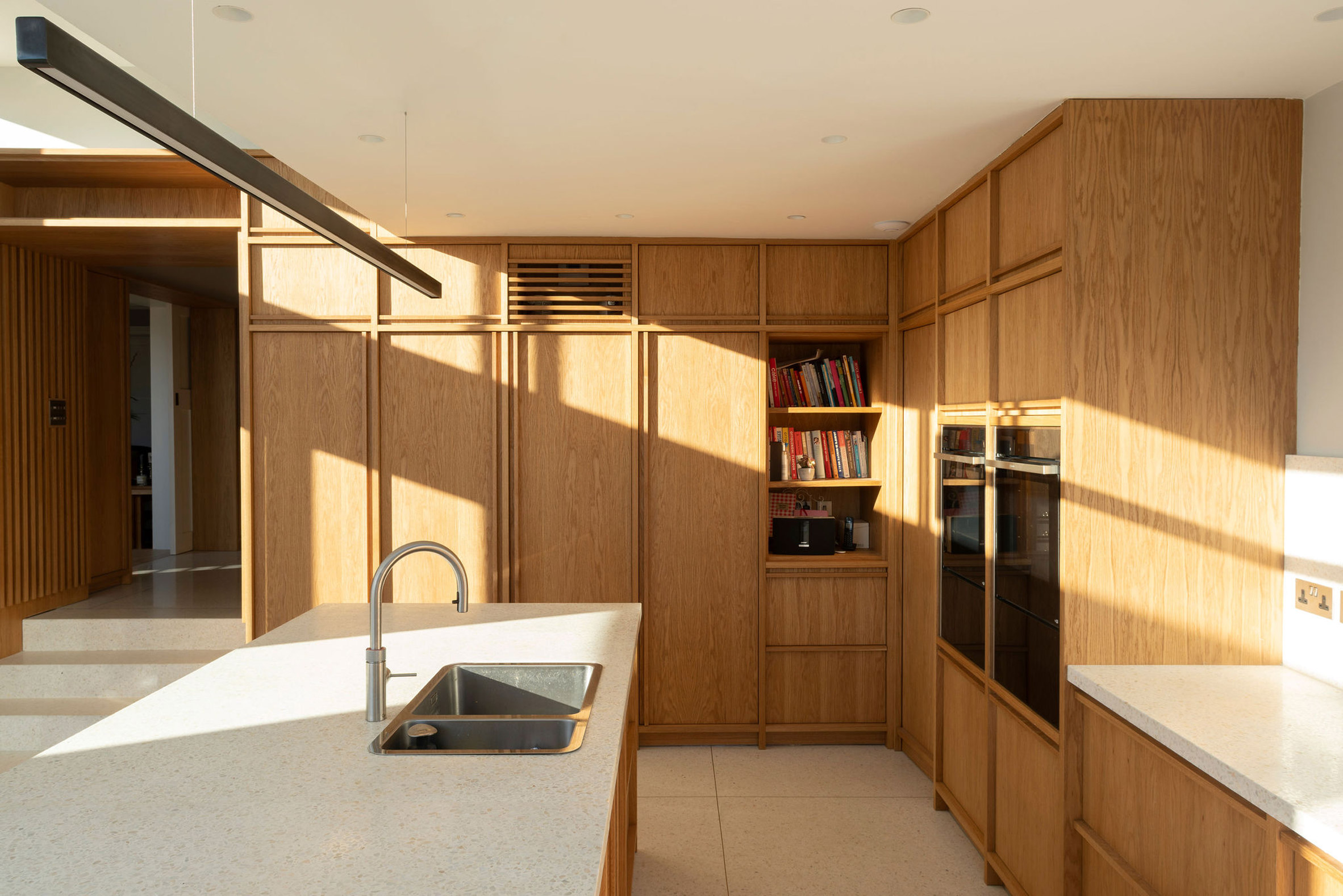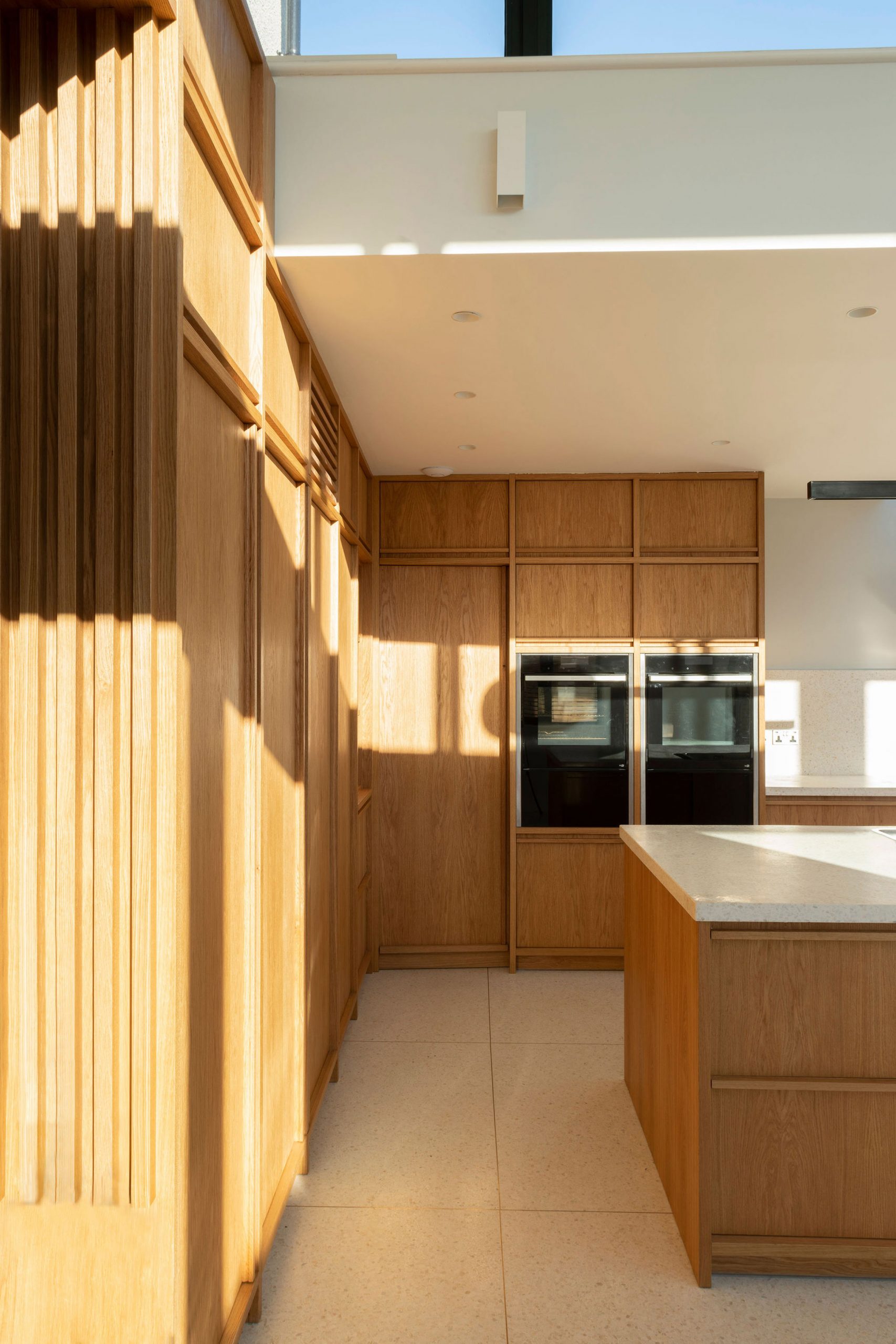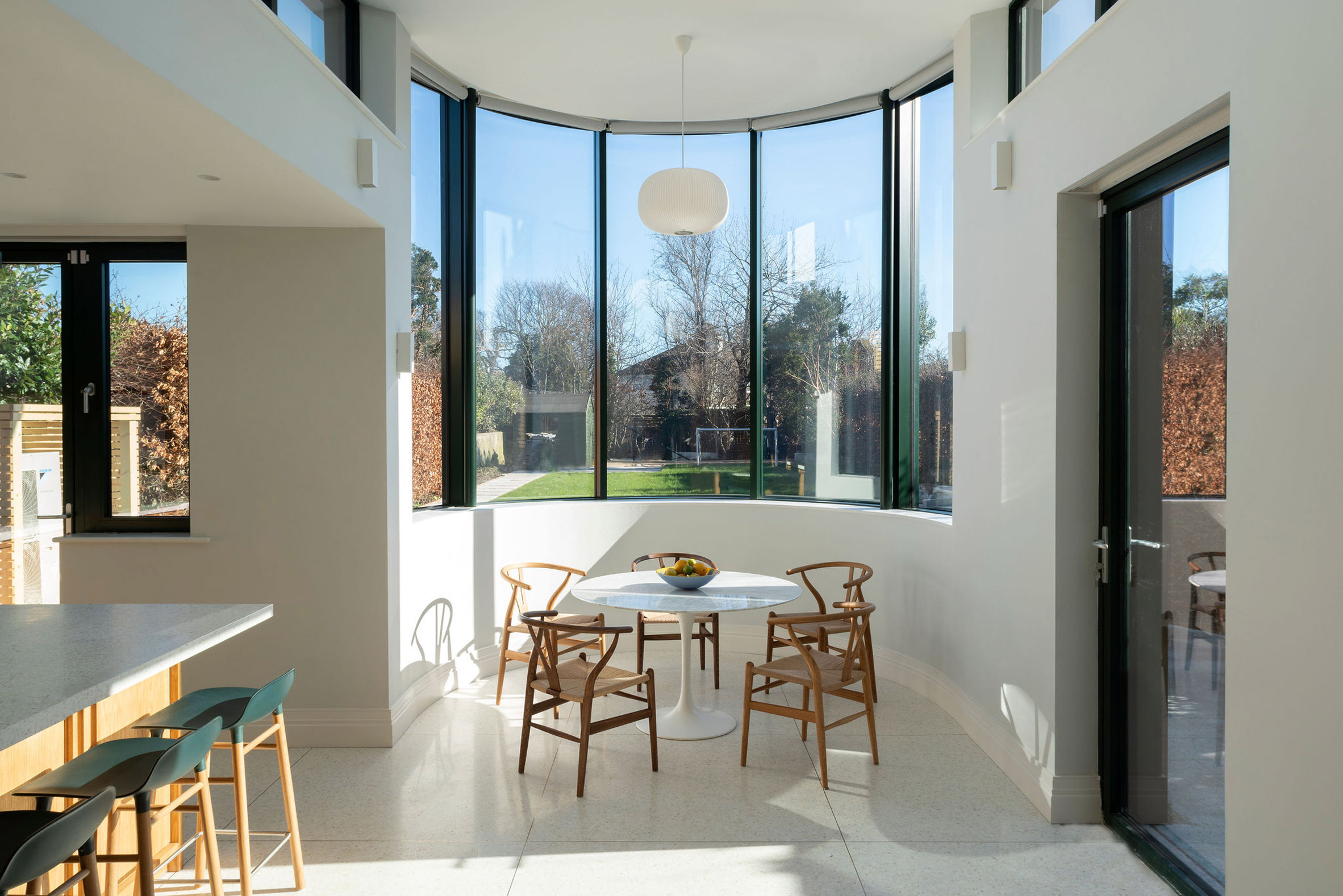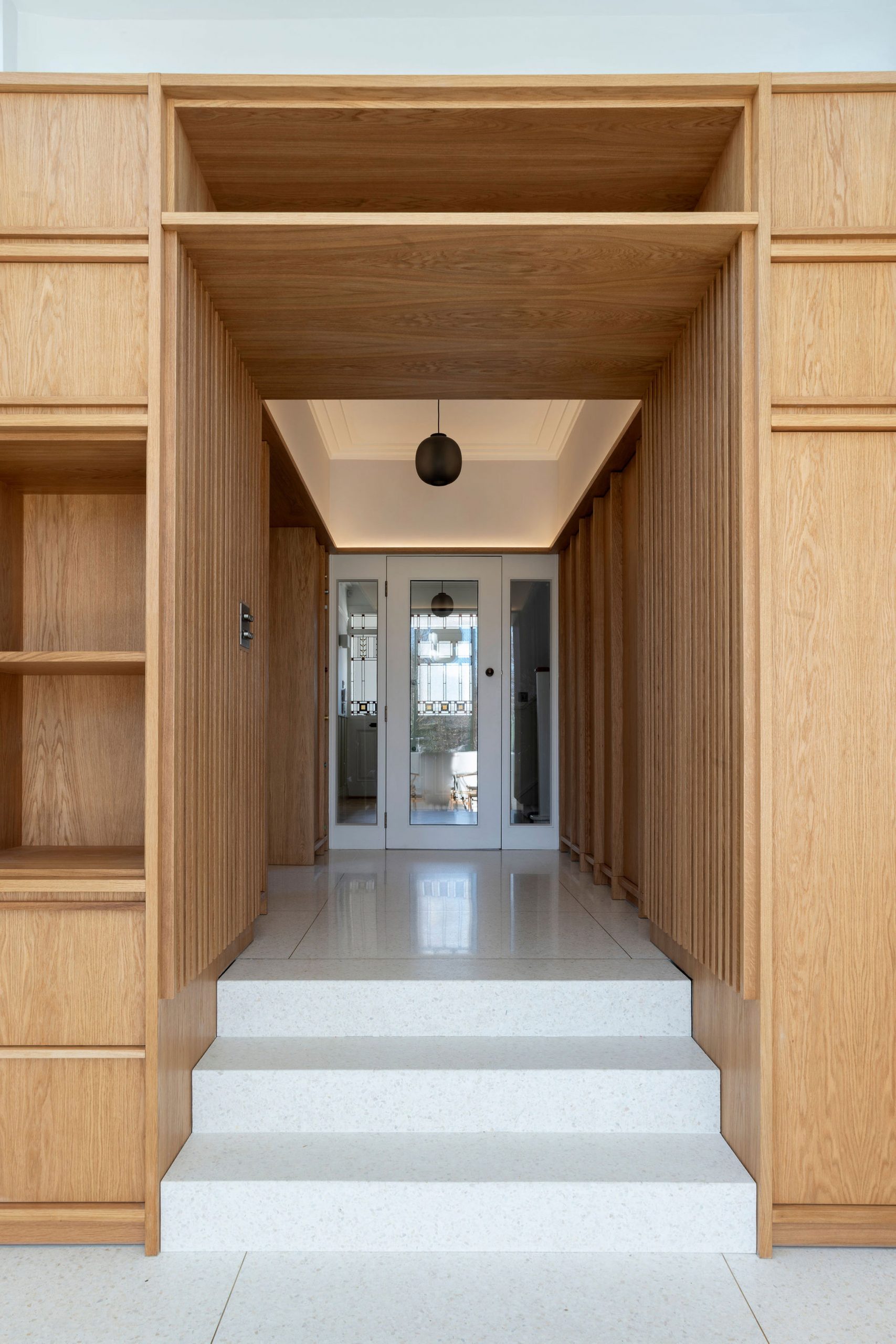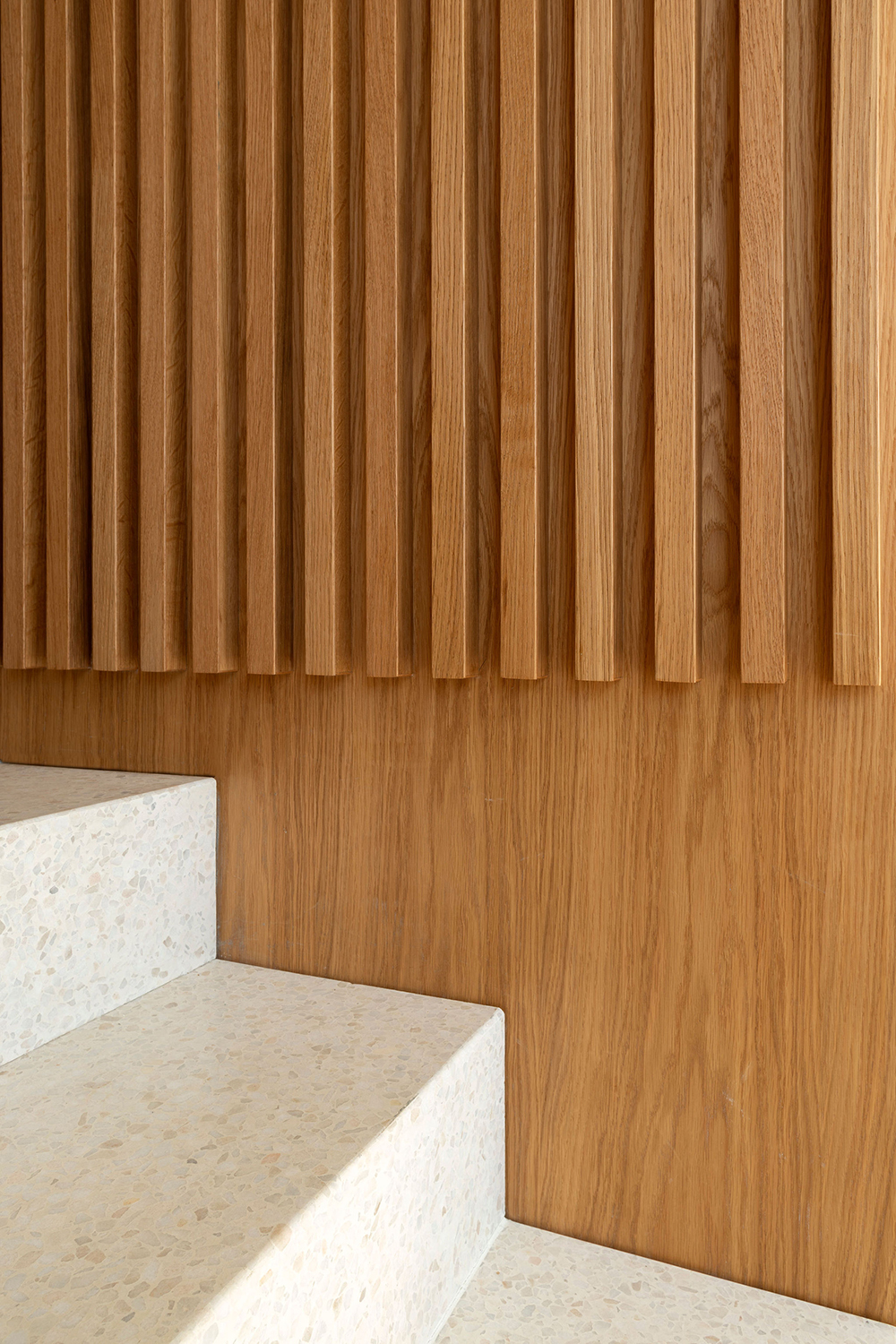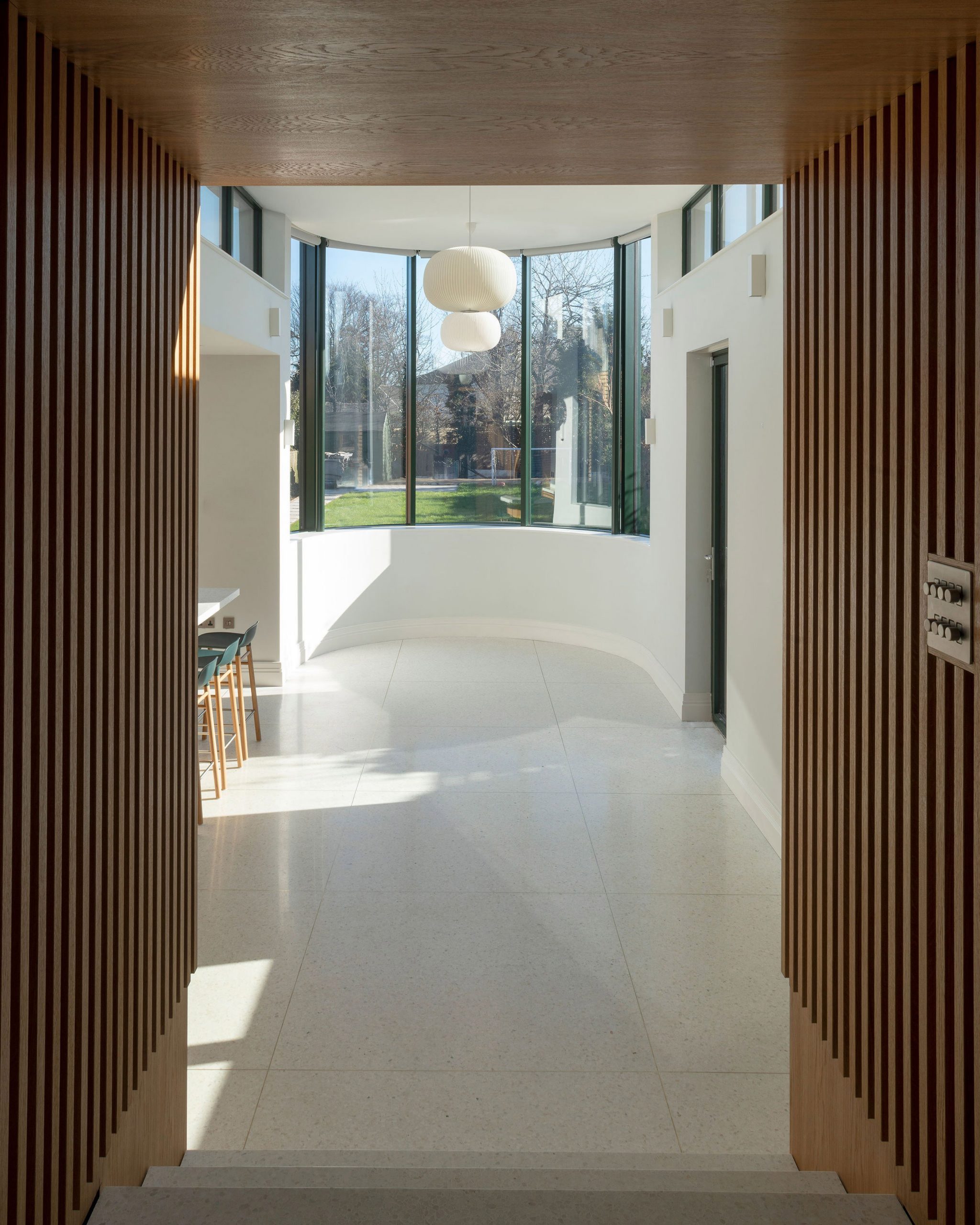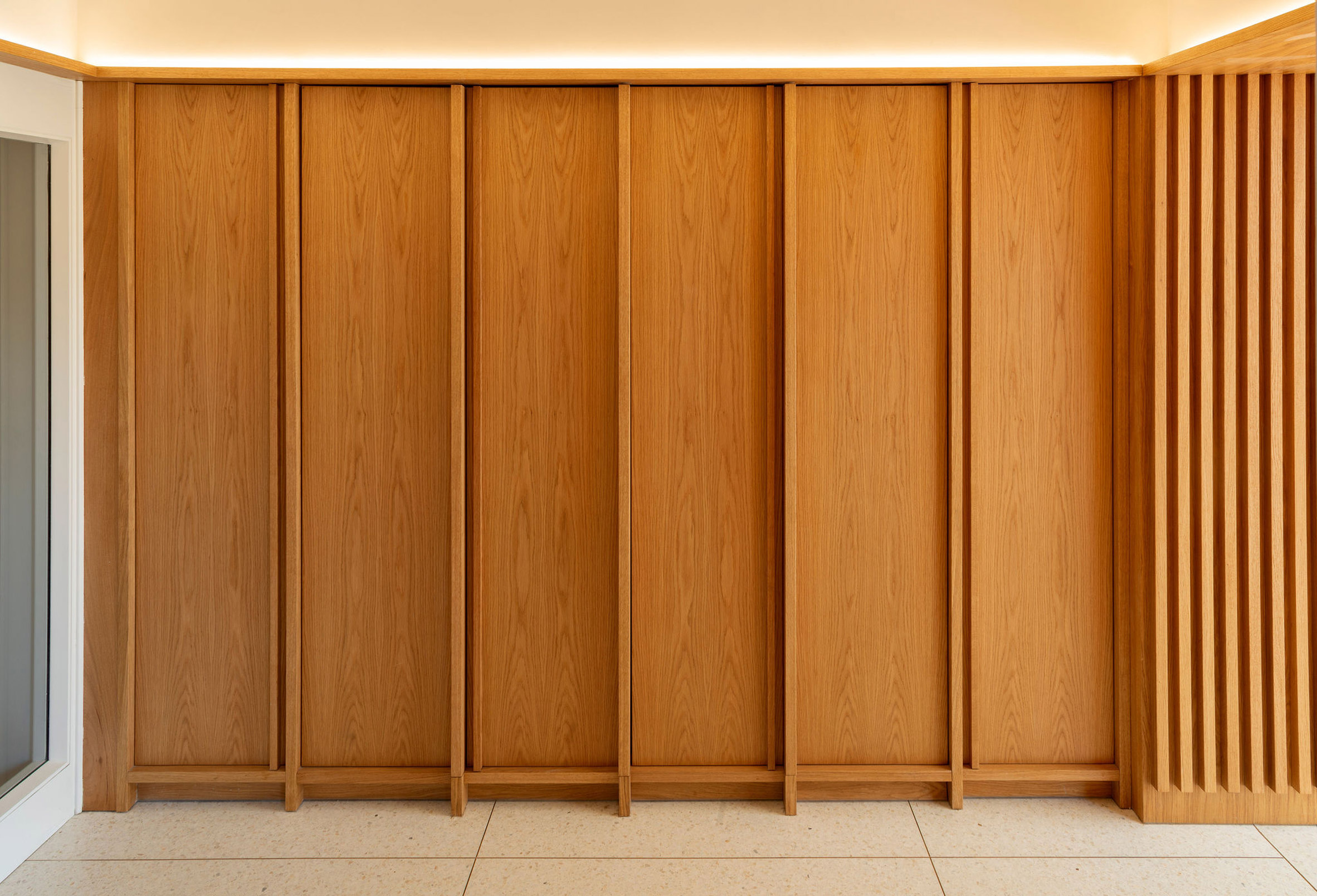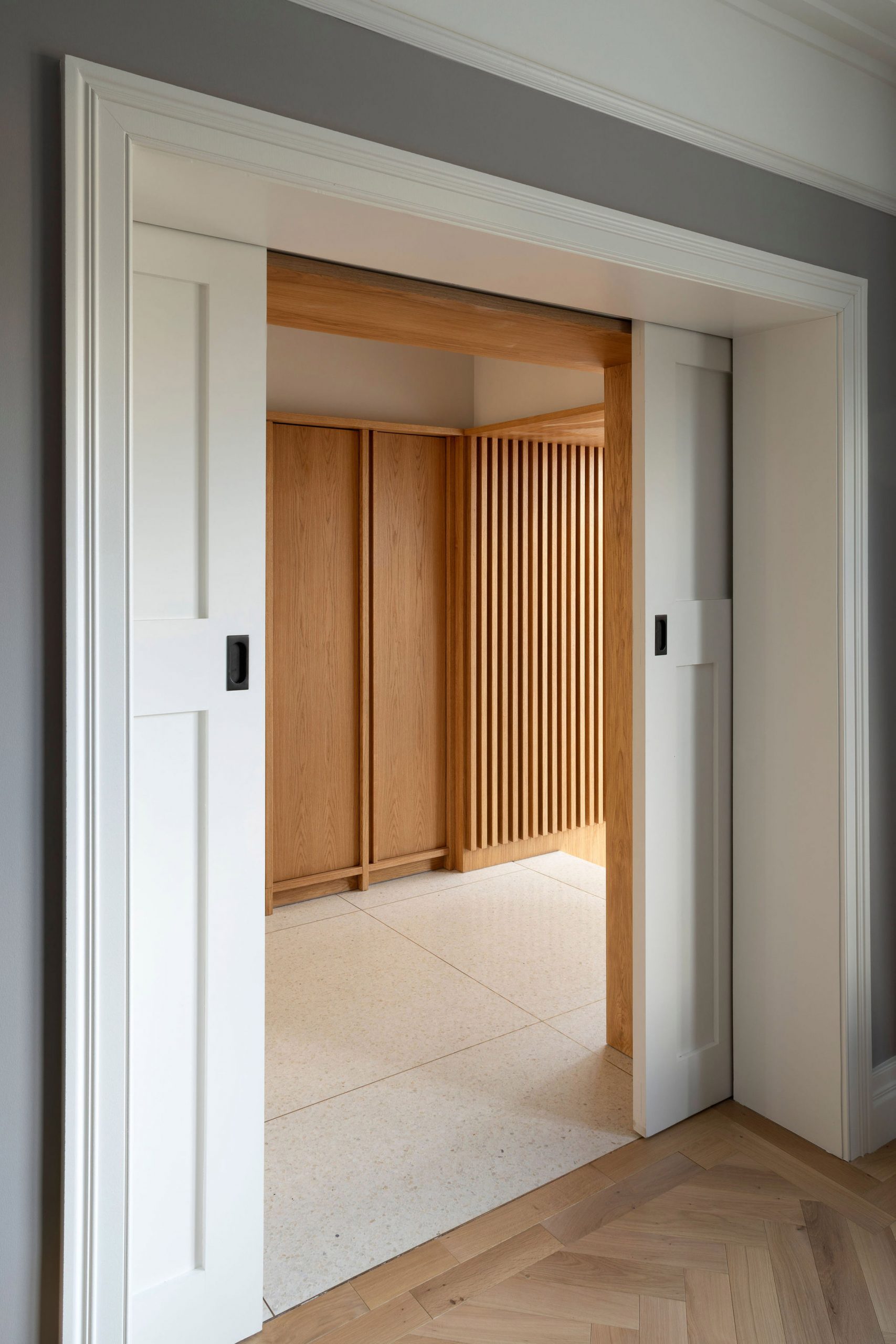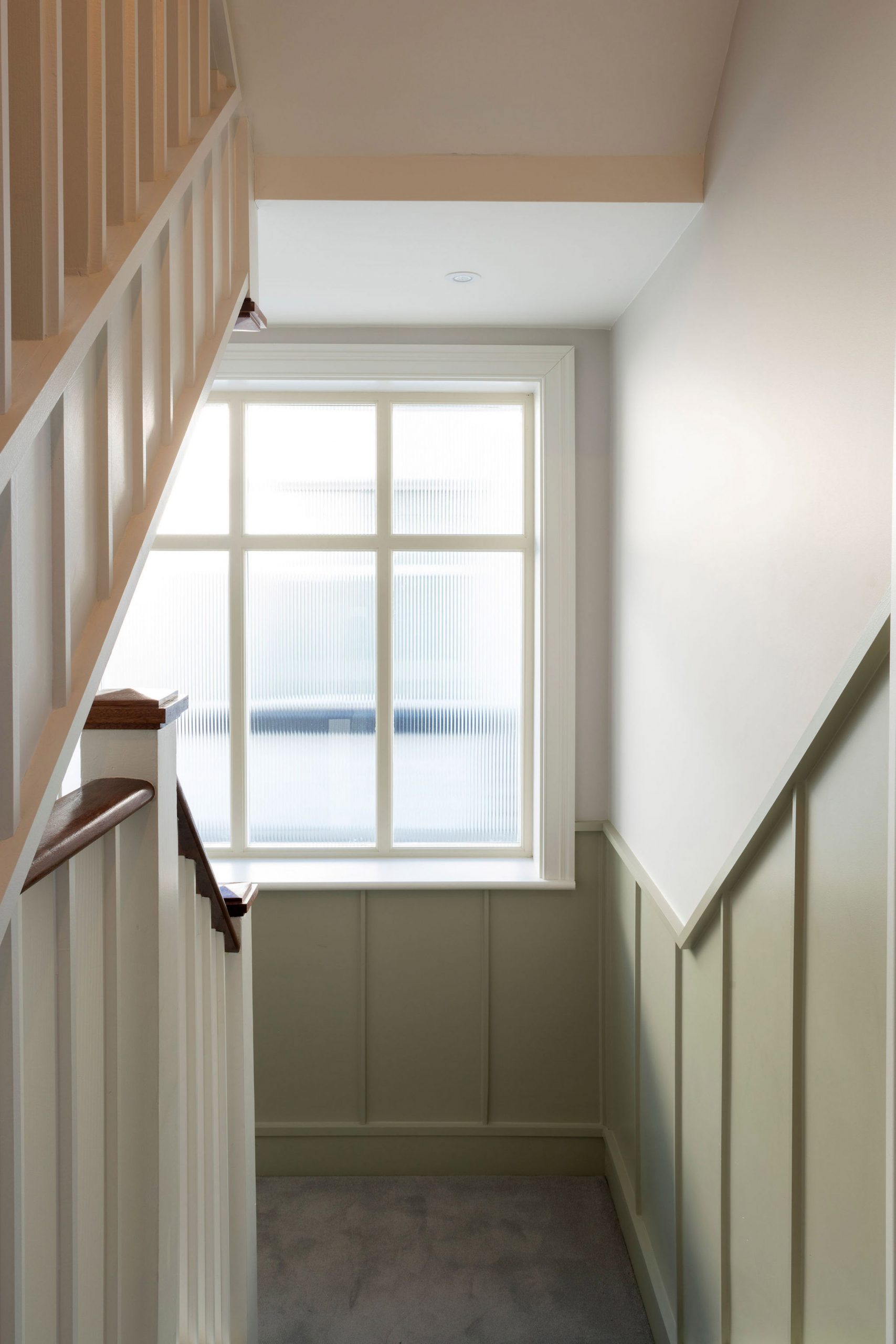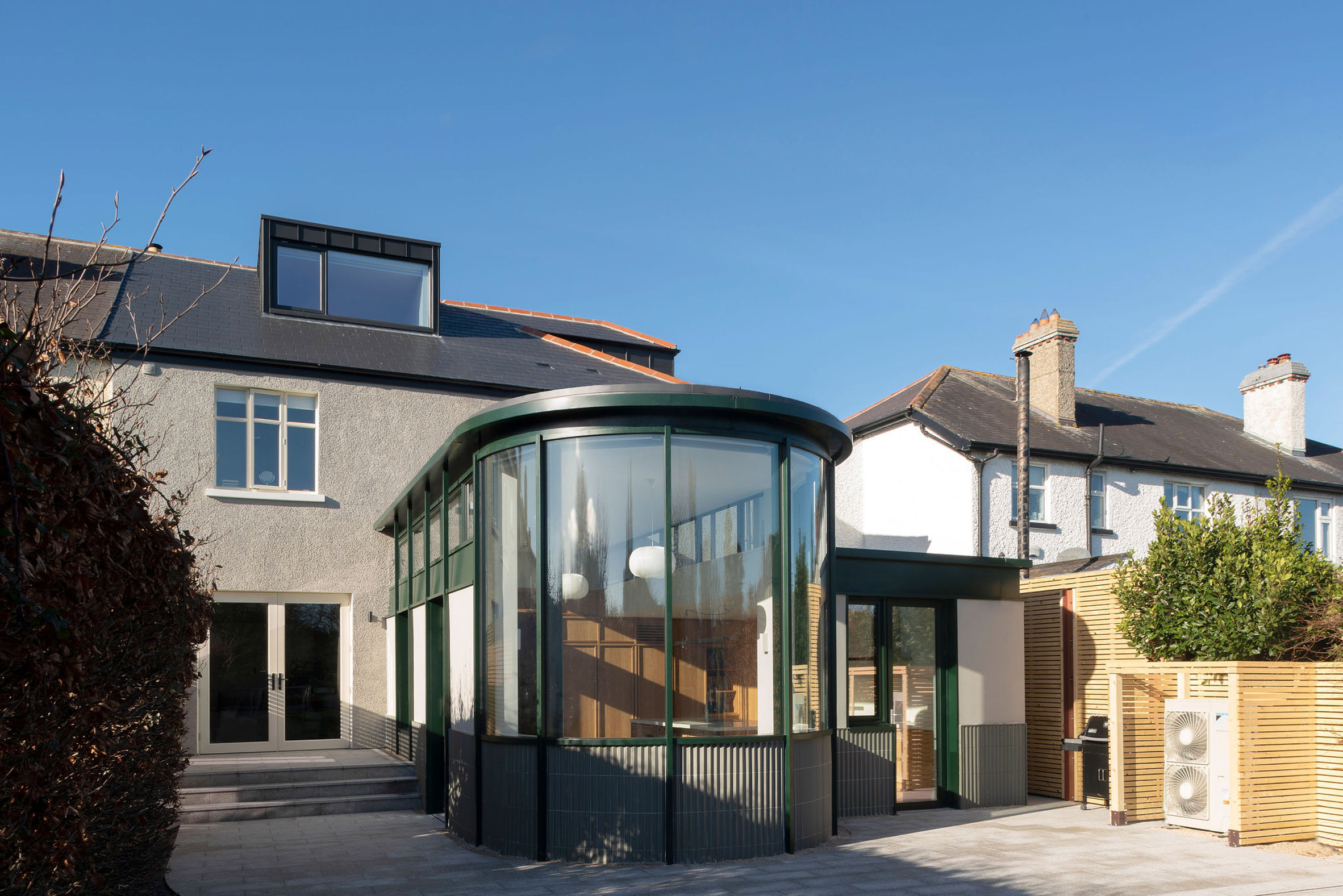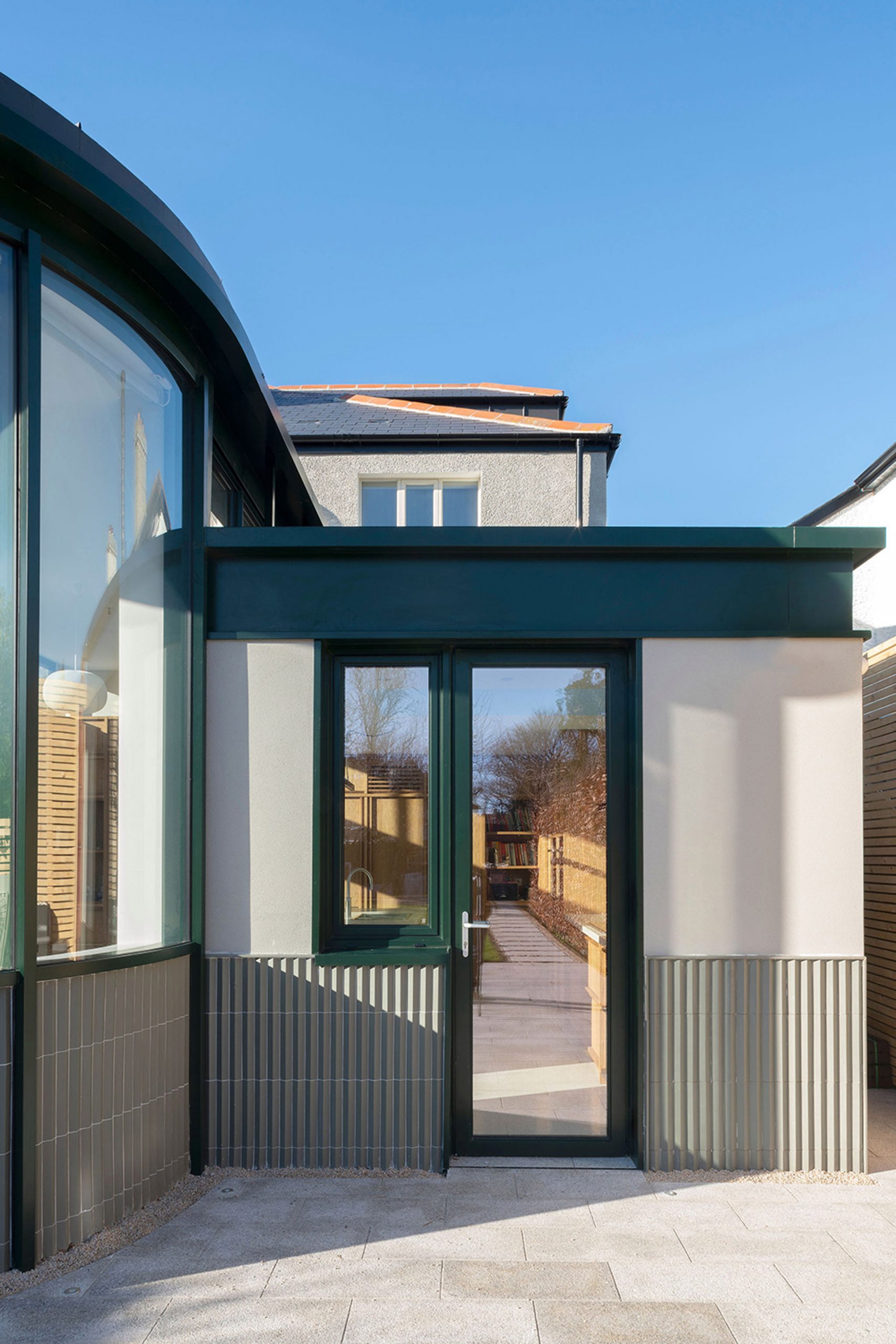Churchtown is a minimal residence located in Dublin, Ireland, designed by Scullion Architects. On this extension to a 1930s house, the existing kitchen was located in a utilitarian dark corner of the original ground floor. The clients were interested in forming a new room that was a continuation of the gentle formality of the main house; rather than extend with a scale-less and alien annex. The brief was to reposition the kitchen in a manner that reflected its centrality to family life and was supportive of the original house. Previously, the entrance hallway was cluttered and unwelcoming.
The studio gave new character to the space by lining the walls with wainscotting and extending through an oak-lined lobby, concealing a wet bar. In the view ahead, terrazzo steps lead to a generous dining room. The view to the garden overlooks a circular dining area wrapped with curved glass. High clerestory windows bring sunlight in until afternoon, and open to exhaust warm air in summer. The curved form creates a calm captured dining space, removed from the foot traffic of people passing through to the garden, and was inspired by the Victorian glass conservatories at Ballyfin and Dunfillan by Richard Turner.
Externally, slender metalwork support gutters and conceal downpipes adding enrichment and delicacy in a manner similarly deployed to the external joinery on the front façade fascias and bay windows of the original house. Inside new oak joinery conceals the appliances, pantry and utility door, while white terrazzo forms work surfaces and protective wall linings. In re-planning the home, the kitchen is now at the heart of family life whilst the original house is renewed and given space to breath and be valued.
Photography is by Fionn McCann
